Angela Kay Austin's Blog, page 16
February 15, 2013
Work in Progress #research
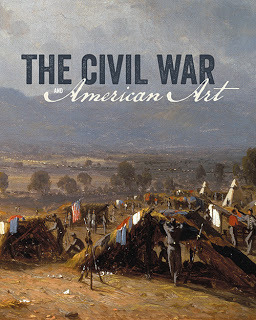 I wanted to share some more of the research I've been reviewing for my current WIP. Because this is the 150th year anniversary of the Civil War, the Smithsonian has an exhibit of Civil War paintings. I stumbled upon this exhibit flipping through the channels. I caught the last half of a broadcast discussing the exhibit and how the paintings were selected.
I wanted to share some more of the research I've been reviewing for my current WIP. Because this is the 150th year anniversary of the Civil War, the Smithsonian has an exhibit of Civil War paintings. I stumbled upon this exhibit flipping through the channels. I caught the last half of a broadcast discussing the exhibit and how the paintings were selected.I think, after watching the documentary, I had a greater appreciation for the exhibit. A lot of the imagery in the paintings would've been lost on me had I not seen it.
Take a look at the pieces included and let me know what you think. (There's also a book to accompany the exhibit.)
The Civil War and American Art.
Published on February 15, 2013 23:40
February 12, 2013
#GuestAuthor @KatePatrick1 visits Angela Kay Austin
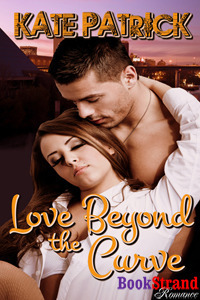 Join me at Romancing the Pen with my guest Kate Patrick. She shares and excerpt with us for her book "Love Beyond the Curve."
Join me at Romancing the Pen with my guest Kate Patrick. She shares and excerpt with us for her book "Love Beyond the Curve."Blurb: Charlotte is shocked to find her new landlord, Reed Jackson, is tall, dark, and gorgeous. The two become fast friends, enjoying times spent together, more than times apart. Charlotte can’t believe that Reed finds her curvaceous figure incredibly sexy. Can Reed convince her he wants to be more than just “friends with benefits”?
Will Charlotte and Reed find… Love Beyond the Curve?
Visit Romancing the Pen!
Published on February 12, 2013 22:46
February 6, 2013
Rules for writing fiction
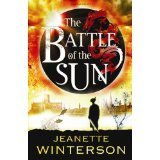
As written for The Guardian by Jeanette Winterson, novelist.
1 Turn up for work. Discipline allows creative freedom. No discipline equals no freedom.
2 Never stop when you are stuck. You may not be able to solve the problem, but turn aside and write something else. Do not stop altogether.
3 Love what you do.
4 Be honest with yourself. If you are no good, accept it. If the work you are doing is no good, accept it.
5 Don't hold on to poor work. If it was bad when it went in the drawer it will be just as bad when it comes out.
6 Take no notice of anyone you don't respect.
7 Take no notice of anyone with a gender agenda. A lot of men still think that women lack imagination of the fiery kind.
8 Be ambitious for the work and not for the reward.
9 Trust your creativity.
10 Enjoy this work!
Published on February 06, 2013 13:12
February 5, 2013
#GuestAuthor - @TessaStockton
Tessa Stockton is at Romancing the Pen with an excerpt from her latest release "Wind's Aria."
 BLURB:
BLURB:
Drop by Romancing the Pen and read an excerpt from "Wind's Aria."
 BLURB:
BLURB:Drop by Romancing the Pen and read an excerpt from "Wind's Aria."
Published on February 05, 2013 00:00
#GuestAuthor - @TesssaStockton
Tessa Stockton is at Romancing the Pen with an excerpt from her latest release "Wind's Aria."
 BLURB:
BLURB:
Drop by Romancing the Pen and read an excerpt from "Wind's Aria."
 BLURB:
BLURB:Drop by Romancing the Pen and read an excerpt from "Wind's Aria."
Published on February 05, 2013 00:00
February 3, 2013
Men don't cry...do they?
Recently, I wrote a scene into one of my WIPs that involved my hero crying. Not falling to the floor trembling from the power of his sobs. But, crying as he asked the woman he loved to forgive him for not being there when she needed him.
It's a true turning point in my story.
But, when I actually thought about the men in my life and the number of times that I've seen them cry the number was small. My father cried when his mother passed. My brother cried when our mother's parents died. An ex cried when his friend committed suicide.
I don't think of myself as any kind of a tender heart, but I must admit I do cry at commercials, hallmark cards, and sometimes romantic movies :-)
For me, it doesn't damage a man's manhood if he cries. But, then, why do we tell little boys big boys don't cry?
I do love the strong alpha male, but admittedly I am probably equally, if not more so, attracted to a man's intelligence. If you put Sherlock Holmes' mind into the body of Brad Pitt or Shemar Moore, I'd be an insanely happy woman.
How do men see it? I asked this question of my friends, and it seems that they don't agree with me. My male friends that is. My female friends don't have any huge objection. But, they all admit, in confidence, that they don't want to have the men in their lives curl up on the couch beside them with a handkerchief as he sobs while watching "Steel Magnolias."
I don't know. I guess I think it's kind of sad that we train young boys at such an early age not to cry. In essence, we're telling them to mask their feelings.
Why?
It's a true turning point in my story.
But, when I actually thought about the men in my life and the number of times that I've seen them cry the number was small. My father cried when his mother passed. My brother cried when our mother's parents died. An ex cried when his friend committed suicide.
I don't think of myself as any kind of a tender heart, but I must admit I do cry at commercials, hallmark cards, and sometimes romantic movies :-)
For me, it doesn't damage a man's manhood if he cries. But, then, why do we tell little boys big boys don't cry?
I do love the strong alpha male, but admittedly I am probably equally, if not more so, attracted to a man's intelligence. If you put Sherlock Holmes' mind into the body of Brad Pitt or Shemar Moore, I'd be an insanely happy woman.
How do men see it? I asked this question of my friends, and it seems that they don't agree with me. My male friends that is. My female friends don't have any huge objection. But, they all admit, in confidence, that they don't want to have the men in their lives curl up on the couch beside them with a handkerchief as he sobs while watching "Steel Magnolias."
I don't know. I guess I think it's kind of sad that we train young boys at such an early age not to cry. In essence, we're telling them to mask their feelings.
Why?
Published on February 03, 2013 14:22
January 25, 2013
Please tell me when did I become my mother!
First, let me say "I love my mother!" But, when did I become her? I don't understand how it happened. It's like one day I opened my eyes, and "whammo!" she was starring back at me from my mirror.
How or why?
Dating, or should I say courting.
While watching the news the other day, I realized that I am one of "those people." I love every gadget I can get my hands on: iPad, iPhone, iPod, Kindle Fire. I love all things social media: blogs, vlogs, Twitter, and (kind of) FaceBook :-) but when it comes to dating...I am my mother.
The news story was about what's acceptable when asking a woman out on a date. Your choices are: texting, calling, emailing, or face-to-face.
For me, there are only two choices: face-to-face and calling. Why because the other two seem impersonal and cold. I use email and text for promoting and selling products for companies that I work for and with. I use them both to push information out to people. But, usually it's from masked addresses that often don't allow responses.
 But, now, they seem to be "okay" methods to ask a woman out. So, then what happens? Do you plan your date by text or email, too? Why do you need the other person? You might as well have a virtual date. Okay, okay, maybe it's not that dramatic, I'm just saying. How do I know that same guy didn't send the same invitation to ten other women, and was simply waiting to see who responded first. Maybe, he would do the same thing if he looked me in my eye or called, but I don't know, I guess it makes me feel differently when I hear his voice or look into his eyes.
But, now, they seem to be "okay" methods to ask a woman out. So, then what happens? Do you plan your date by text or email, too? Why do you need the other person? You might as well have a virtual date. Okay, okay, maybe it's not that dramatic, I'm just saying. How do I know that same guy didn't send the same invitation to ten other women, and was simply waiting to see who responded first. Maybe, he would do the same thing if he looked me in my eye or called, but I don't know, I guess it makes me feel differently when I hear his voice or look into his eyes.
 I remember talking with my mother, her sisters, and my grandmother about men. Men should do this. Men should do that. Or, women should do this or that. I rebelled against most of it because to me it all seemed so stereotypical. And I refused to be the "stereotypical" southern woman.
I remember talking with my mother, her sisters, and my grandmother about men. Men should do this. Men should do that. Or, women should do this or that. I rebelled against most of it because to me it all seemed so stereotypical. And I refused to be the "stereotypical" southern woman.
Now, the only thing I can think about is how much I kind of wish some of those old school things would come back.
How or why?
Dating, or should I say courting.
While watching the news the other day, I realized that I am one of "those people." I love every gadget I can get my hands on: iPad, iPhone, iPod, Kindle Fire. I love all things social media: blogs, vlogs, Twitter, and (kind of) FaceBook :-) but when it comes to dating...I am my mother.
The news story was about what's acceptable when asking a woman out on a date. Your choices are: texting, calling, emailing, or face-to-face.
For me, there are only two choices: face-to-face and calling. Why because the other two seem impersonal and cold. I use email and text for promoting and selling products for companies that I work for and with. I use them both to push information out to people. But, usually it's from masked addresses that often don't allow responses.
 But, now, they seem to be "okay" methods to ask a woman out. So, then what happens? Do you plan your date by text or email, too? Why do you need the other person? You might as well have a virtual date. Okay, okay, maybe it's not that dramatic, I'm just saying. How do I know that same guy didn't send the same invitation to ten other women, and was simply waiting to see who responded first. Maybe, he would do the same thing if he looked me in my eye or called, but I don't know, I guess it makes me feel differently when I hear his voice or look into his eyes.
But, now, they seem to be "okay" methods to ask a woman out. So, then what happens? Do you plan your date by text or email, too? Why do you need the other person? You might as well have a virtual date. Okay, okay, maybe it's not that dramatic, I'm just saying. How do I know that same guy didn't send the same invitation to ten other women, and was simply waiting to see who responded first. Maybe, he would do the same thing if he looked me in my eye or called, but I don't know, I guess it makes me feel differently when I hear his voice or look into his eyes. I remember talking with my mother, her sisters, and my grandmother about men. Men should do this. Men should do that. Or, women should do this or that. I rebelled against most of it because to me it all seemed so stereotypical. And I refused to be the "stereotypical" southern woman.
I remember talking with my mother, her sisters, and my grandmother about men. Men should do this. Men should do that. Or, women should do this or that. I rebelled against most of it because to me it all seemed so stereotypical. And I refused to be the "stereotypical" southern woman.Now, the only thing I can think about is how much I kind of wish some of those old school things would come back.
Published on January 25, 2013 10:22
January 20, 2013
#GuestAuthor - Janie Franz
My guest this week is Janie Franz. One of my fellow MuseItUP Publishing authors.
 This week, Janie joins me to discuss how she uses pieces of her life in her writing. She'll share with us how it helps her build her worlds and create the interesting lives of her characters.
This week, Janie joins me to discuss how she uses pieces of her life in her writing. She'll share with us how it helps her build her worlds and create the interesting lives of her characters.
Drop by Romancing the Pen this week, and join in the conversation.
Book blurb:
Music journalist/artist Shivaun Corbin, on assignment at charismatic rocker Daniel Madux’s Sugar Magnolia, discovers dark secrets and hidden passion.
 This week, Janie joins me to discuss how she uses pieces of her life in her writing. She'll share with us how it helps her build her worlds and create the interesting lives of her characters.
This week, Janie joins me to discuss how she uses pieces of her life in her writing. She'll share with us how it helps her build her worlds and create the interesting lives of her characters.Drop by Romancing the Pen this week, and join in the conversation.
Book blurb:
Music journalist/artist Shivaun Corbin, on assignment at charismatic rocker Daniel Madux’s Sugar Magnolia, discovers dark secrets and hidden passion.
Published on January 20, 2013 01:00
January 19, 2013
#BookReview - Archangel's Kiss by @NaliniSingh
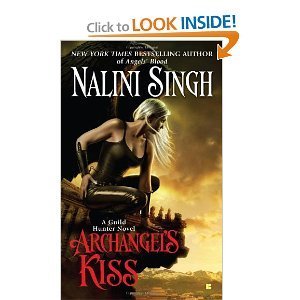 Yes, I hit my magic button when I put down Angels' Bood, and freaking immediately began reading Archangel's Kiss!
Yes, I hit my magic button when I put down Angels' Bood, and freaking immediately began reading Archangel's Kiss!I mean, what was I supposed to do. The freaking angel was in my dreams. I had angelfire coming from my own fingers. Honestly, I was forced to do it. I won't start Archangel's Consort until...January. Maybe :-)
Raphael is delicious and I kick Elena out as much as possible.
Archangel's Kiss catches us up on what happened in Angels' Blood. For people like me, this allows you to not necessarily have to read Angels' Blood to know what's going on.
Nalini continues to introduce readers to her group of god-like angels. Their faults: jealousies, pettiness, and power struggles. Like Elena, my heart breaks a little more with the knowledge of each angel's human-like behavior.
Along with Elena, I want the angels to be better than me. And if they can't be, then I want Raphael to kick their arses!
There are a number of sub-plots in this book. Nalini does a great job of giving you just enough of each to tantalize. Enough to make you want to know more. Where's Raphael's mother? What will Neha do next? What is Lijuan?
So many questions.
Published on January 19, 2013 21:05
January 6, 2013
Rules for writing fiction
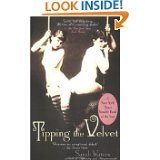
As written for The Guardian by Sarah Waters, novelist.
1 Read like mad. But try to do it analytically – which can be hard, because the better and more compelling a novel is, the less conscious you will be of its devices. It's worth trying to figure those devices out, however: they might come in useful in your own work. I find watching films also instructive. Nearly every modern Hollywood blockbuster is hopelessly long and baggy. Trying to visualise the much better films they would have been with a few radical cuts is a great exercise in the art of story-telling. Which leads me on to . . .
2 Cut like crazy. Less is more. I've often read manuscripts – including my own – where I've got to the beginning of, say, chapter two and have thought: "This is where the novel should actually start." A huge amount of information about character and backstory can be conveyed through small detail. The emotional attachment you feel to a scene or a chapter will fade as you move on to other stories. Be business-like about it. In fact . . .
3 Treat writing as a job. Be disciplined. Lots of writers get a bit OCD-ish about this. Graham Greene famously wrote 500 words a day. Jean Plaidy managed 5,000 before lunch, then spent the afternoon answering fan mail. My minimum is 1,000 words a day – which is sometimes easy to achieve, and is sometimes, frankly, like shitting a brick, but I will make myself stay at my desk until I've got there, because I know that by doing that I am inching the book forward. Those 1,000 words might well be rubbish – they often are. But then, it is always easier to return to rubbish words at a later date and make them better.
4 Writing fiction is not "self-expression" or "therapy". Novels are for readers, and writing them means the crafty, patient, selfless construction of effects. I think of my novels as being something like fairground rides: my job is to strap the reader into their car at the start of chapter one, then trundle and whizz them through scenes and surprises, on a carefully planned route, and at a finely engineered pace.
5 Respect your characters, even the minor ones. In art, as in life, everyone is the hero of their own particular story; it is worth thinking about what your minor characters' stories are, even though they may intersect only slightly with your protagonist's. At the same time . . .
6 Don't overcrowd the narrative. Characters should be individualised, but functional – like figures in a painting. Think of Hieronymus Bosch's Christ Mocked, in which a patiently suffering Jesus is closely surrounded by four threatening men. Each of the characters is unique, and yet each represents a type; and collectively they form a narrative that is all the more powerful for being so tightly and so economically constructed. On a similar theme . . .
7 Don't overwrite. Avoid the redundant phrases, the distracting adjectives, the unnecessary adverbs. Beginners, especially, seem to think that writing fiction needs a special kind of flowery prose, completely unlike any sort of language one might encounter in day-to-day life. This is a misapprehension about how the effects of fiction are produced, and can be dispelled by obeying Rule 1. To read some of the work of Colm Tóibín or Cormac McCarthy, for example, is to discover how a deliberately limited vocabulary can produce an astonishing emotional punch.
8 Pace is crucial. Fine writing isn't enough. Writing students can be great at producing a single page of well-crafted prose; what they sometimes lack is the ability to take the reader on a journey, with all the changes of terrain, speed and mood that a long journey involves. Again, I find that looking at films can help. Most novels will want to move close, linger, move back, move on, in pretty cinematic ways.
9 Don't panic. Midway through writing a novel, I have regularly experienced moments of bowel-curdling terror, as I contemplate the drivel on the screen before me and see beyond it, in quick succession, the derisive reviews, the friends' embarrassment, the failing career, the dwindling income, the repossessed house, the divorce . . . Working doggedly on through crises like these, however, has always got me there in the end. Leaving the desk for a while can help. Talking the problem through can help me recall what I was trying to achieve before I got stuck. Going for a long walk almost always gets me thinking about my manuscript in a slightly new way. And if all else fails, there's prayer. St Francis de Sales, the patron saint of writers, has often helped me out in a crisis. If you want to spread your net more widely, you could try appealing to Calliope, the muse of epic poetry, too.
10 Talent trumps all. If you're a really great writer, none of these rules need apply. If James Baldwin had felt the need to whip up the pace a bit, he could never have achieved the extended lyrical intensity of Giovanni's Room. Without "overwritten" prose, we would have none of the linguistic exuberance of a Dickens or an Angela Carter. If everyone was economical with their characters, there would be no Wolf Hall . . . For the rest of us, however, rules remain important. And, crucially, only by understanding what they're for and how they work can you begin to experiment with breaking them.
Published on January 06, 2013 12:59



